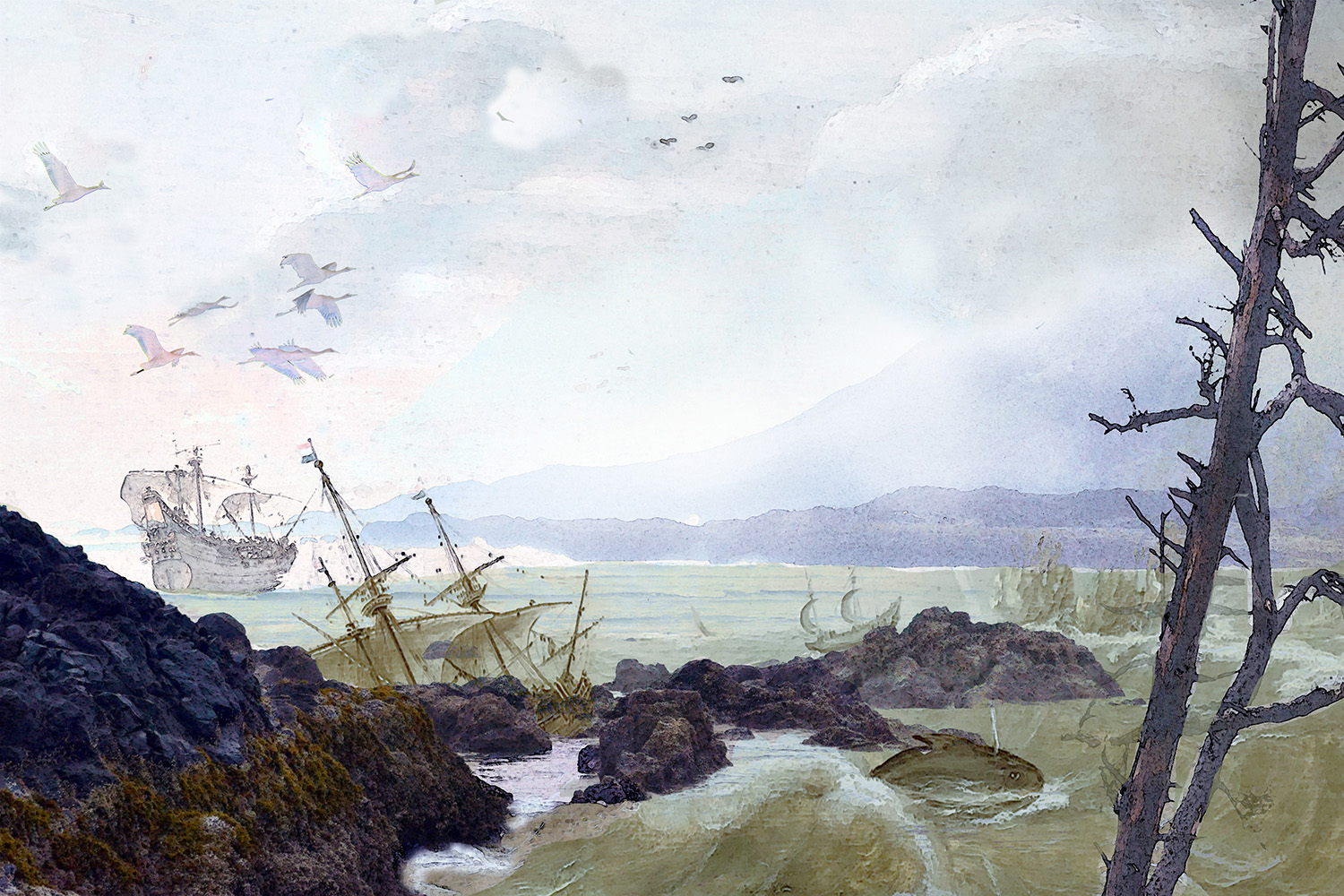Happy sloths. Happy storks. Happy Cows. Unhappy whales. At least some of them. (And yes, you only get the jokes if you regularly read the blog when it resorts to the to be continued mode….)

This week was devoted to looking more closely at nature and in particular at migration. Whales, of course, are among the most familiar species doing an annual trek, and we would be remiss not to mention some of the scientific findings around their existence. (I wrote a bit about them last year here.)
So why describe them as unhappy? Well, several of their kind are severely endangered, and not just because the whale oil industry of yore pursued them to the brink of extinction.

Take right wales, for example, who once roamed the Atlantic and whose numbers are dwindling. In the last 10 years the number of calves born to them have dropped tremendously. And when a calf is born it rests for some 5 months with the mother at the ocean’s surface – completely at risk to be stricken by shipping vessels, or caught in fishing gear. Mariners cannot detect them with listening devices, to avoid collisions, because the instinctual behavior is NOT to make sounds, to avoid natural predators. Between declining fertility and rising accident mortality, they are at risk of extinction. Only 400-500 of them remain in the Atlantic and fewer than 100 in the Pacific.

Sei whales? Endangered. Blue whales? Endangered. Sperm and fin whales? Vulnerable. Any tidbits that can distract us from getting too depressed by these facts? The tongue of a blue whale alone is equivalent to the weight of an elephant! They migrate from the polar and subarctic regions in summer to the tropical and subtropical waters in winter, some of them are over 150 years old – which means they actually were alive during commercial whaling times and might remember being hunted by whalers. Autopsies on dead sperm whales revealed up to 65 pounds of plastic in their stomachs, leading to blockage and causing lethal peritonitis. Ok, not helping with the depression, is it.

I can do better. Humpback whales are thriving after coming close to extinction! Scientists stress the role of proper management for the recovery (details here) but also warn that the food for which whales and so many other marine animals compete, namely Krill, is strongly affected by global warming, getting increasingly scarce. If more whales feed on it, there’s less to go around for the ones lower in the food chain….

Ok, I give up. All these facts are part of why I currently have turned to working on an art series that uses (partial) 17th century dutch paintings of traditional whaling expeditions, combined with my photographs of contemporary Northwest landscapes and birds, as an example of the consequences of ruthless environmental exploitation to both nature and humankind. Today’s images are the latest examples in that endeavor, I had, after all, promised some art as well.

And here is a tone poem by Alan Hovhaness performed by the Seattle symphony.






Sara Lee
Nice to see the New Bedford paintings in yet another iteration!
Sam Blair
The Whales, ohh, the whales!
Should there ever be a Volume 4, may it be for the upright migrators, the ultimate immigrant, the Homo Sapien. Do birds of a different feather say to other birds, “Get out! You are not like me”. Or, in the words of demagogues, “Go back to where you came from!”
What other species says that? Only us. Enclosed is a poem from the 19th century paying tribute to the noble symbolism of the Statue of Liberty. But that was then.
The New Collossus
Emma Lazarus – 1849-1887
Not like the brazen giant of Greek fame,
With conquering limbs astride from land to land;
Here at our sea-washed, sunset gates shall stand
A mighty woman with a torch, whose flame
Is the imprisoned lightning, and her name
Mother of Exiles. From her beacon-hand
Glows world-wide welcome; her mild eyes command
The air-bridged harbor that twin cities frame.
“Keep, ancient lands, your storied pomp!” cries she
With silent lips. “Give me your tired, your poor,
Your huddled masses yearning to breathe free,
The wretched refuse of your teeming shore.
Send these, the homeless, tempest-tost to me,
I lift my lamp beside the golden door!”